The Gorbals of the 1940s - through Bert Hardy's eyes
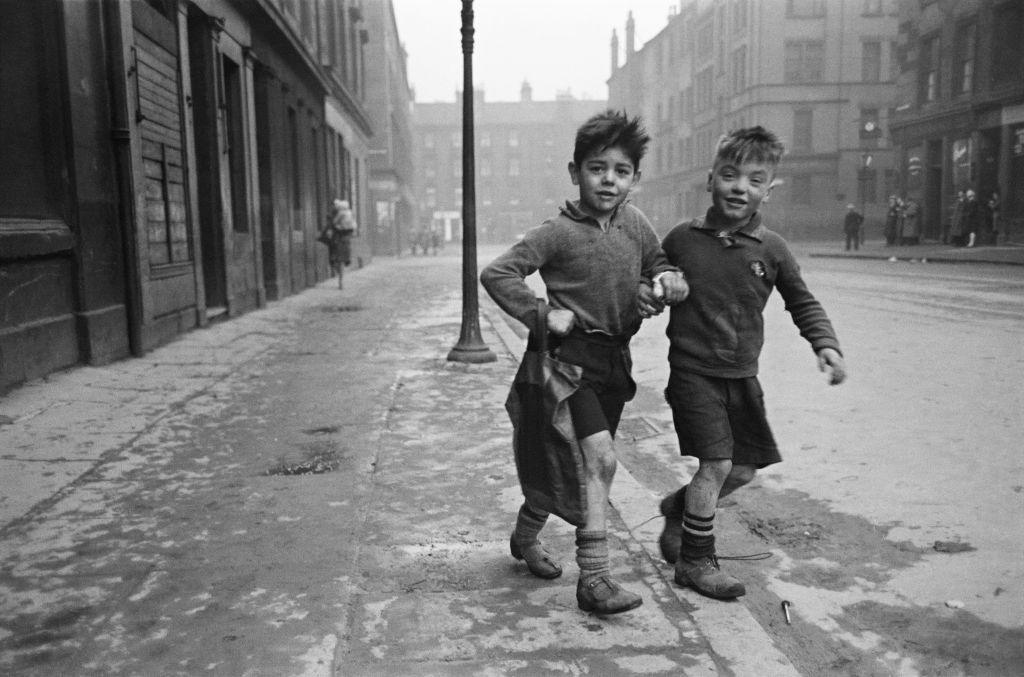
This image, named the Gorbals Boys, is one of Hardy's most famous. It was taken in 1948 of Les Mason, left, and his friend George Davis
- Published
Glasgow in the late 1940s was a place of slum housing, overcrowding and disease.
The post-war city struggled to pick itself up and the Gorbals area soon became one of Europe's worst slums.
At the time, about 40,000 people lived in tenement housing, where conditions were appalling.
It was where photojournalist Bert Hardy saw an opportunity to capture striking images of life in the area.
Boy from iconic photograph dies
- Published12 July 2011
In pictures: Bert Hardy
- Published26 April 2013
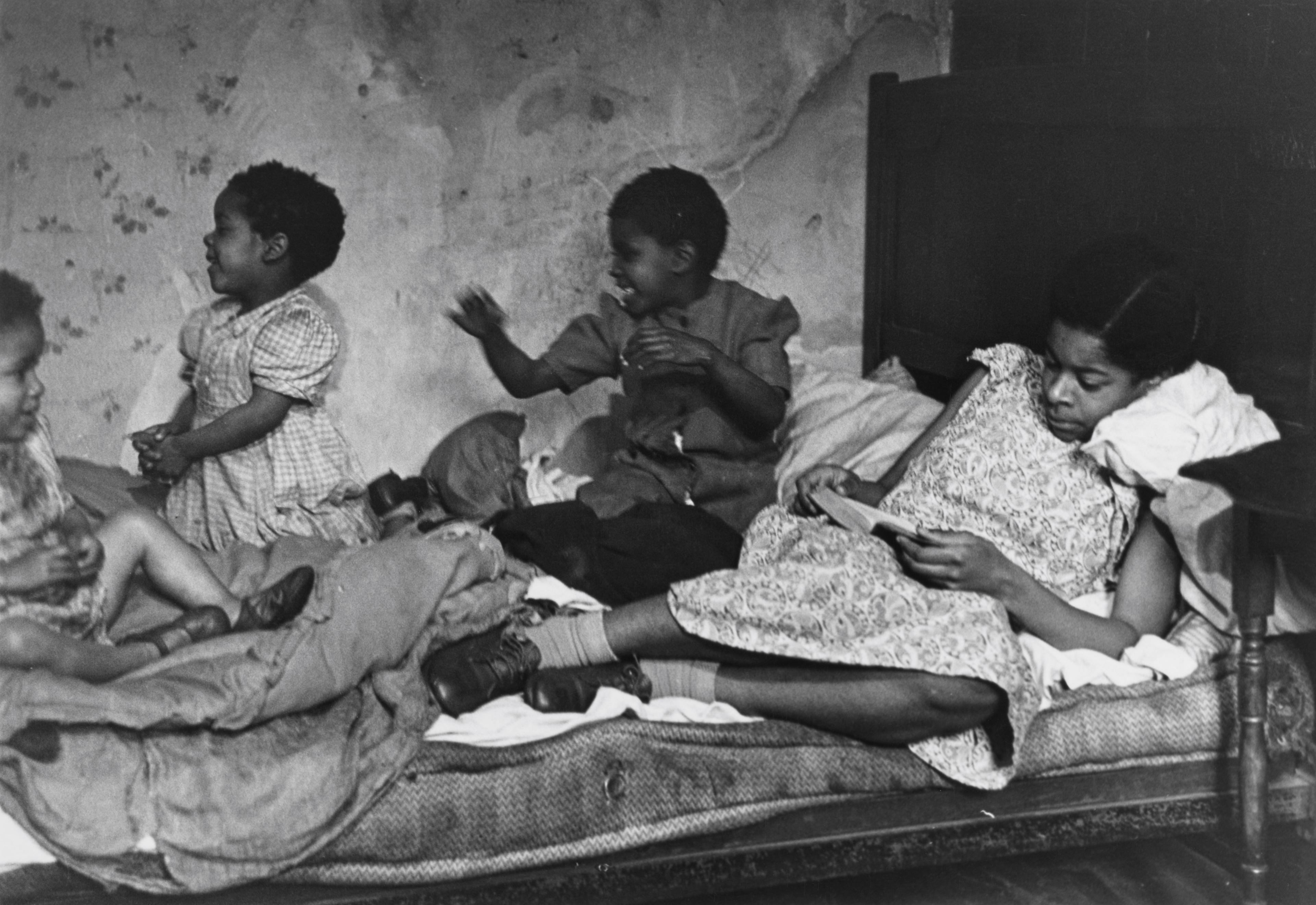
A girl reading on an old bed in a rundown room
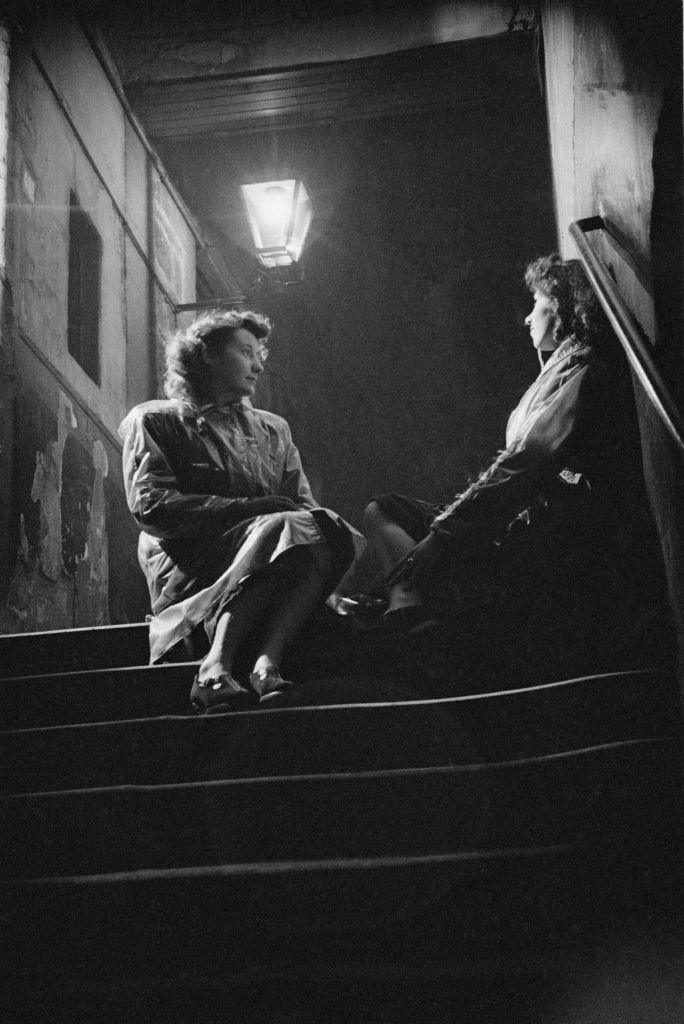
Two women chatting on the stairs of flats in the Gorbals
He was born in London in 1913 to a working-class family.
Hardy began working as a freelance photographer and eventually went on to be hired as a staff photographer for Picture Post.
His images of the Gorbals were published in the magazine on 31 January 1948 under the head line 'the forgotten Gorbals'.
In his time, he captured images of people in the slums of London and Glasgow as well as scenes from World War II and the Korean War.
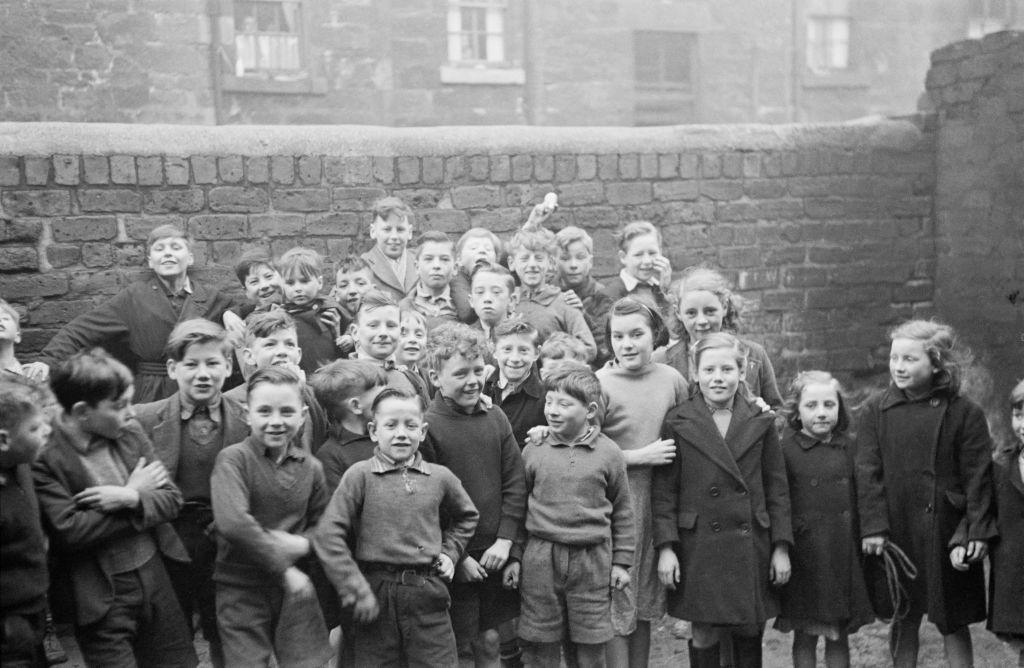
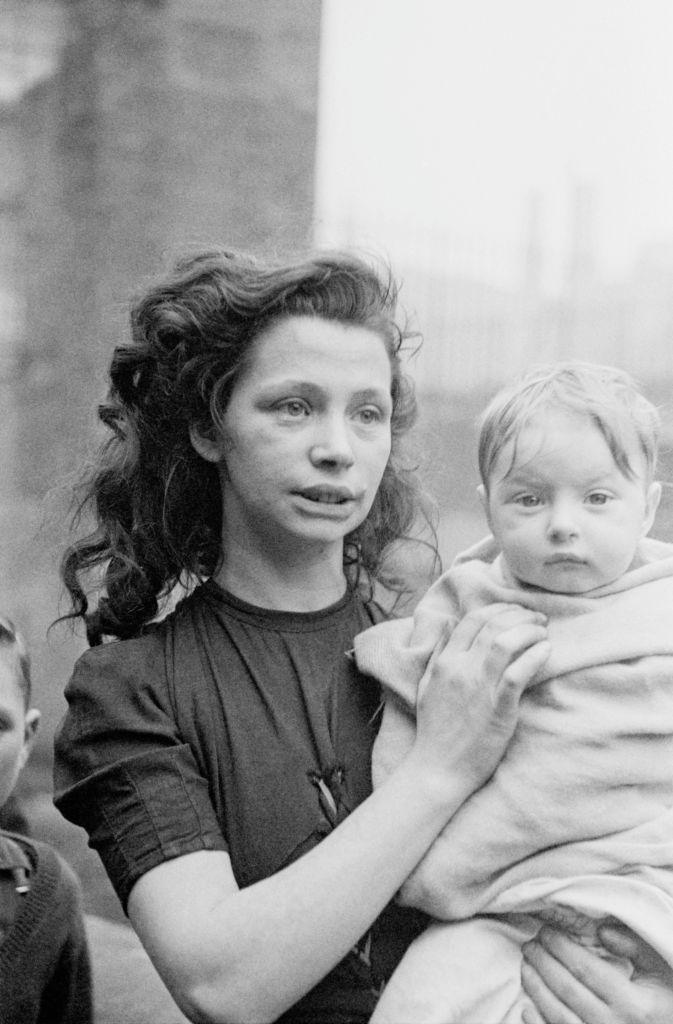
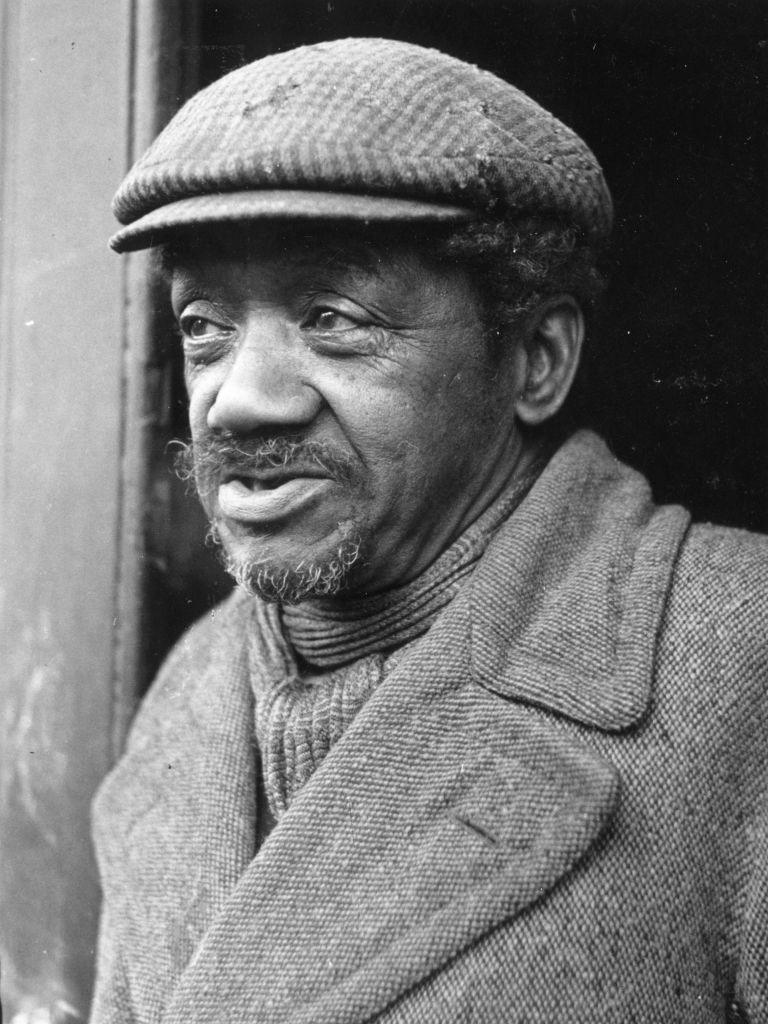
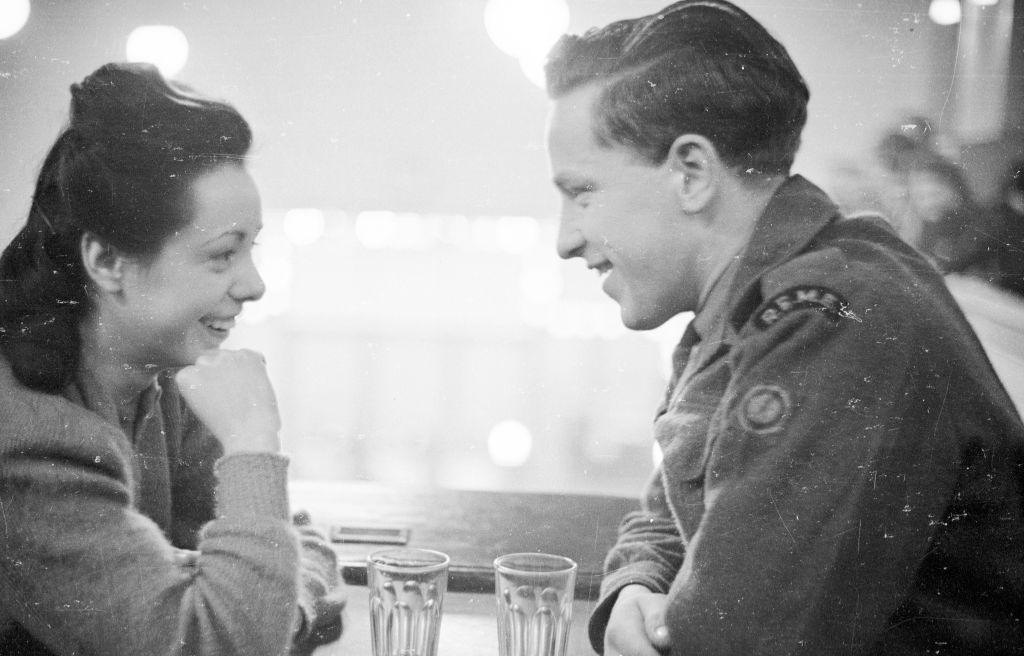
Many people who lived in the Gorbals were industrial workers and they needed housing - and quickly.
Tenements were built to cater for the growing population in the 1840s, with very little time and money put into their construction.
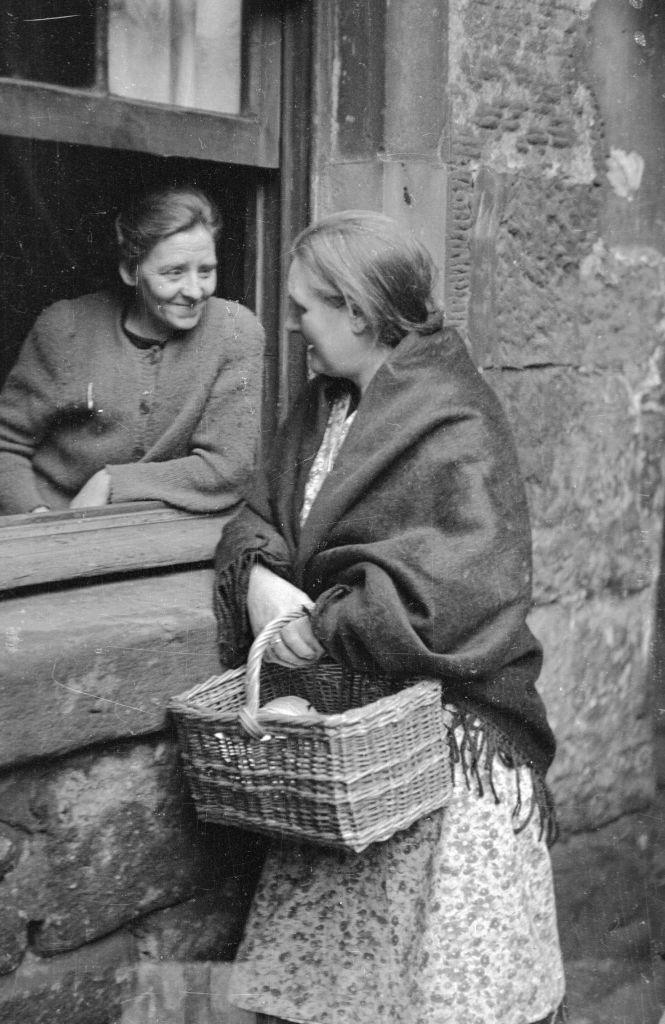
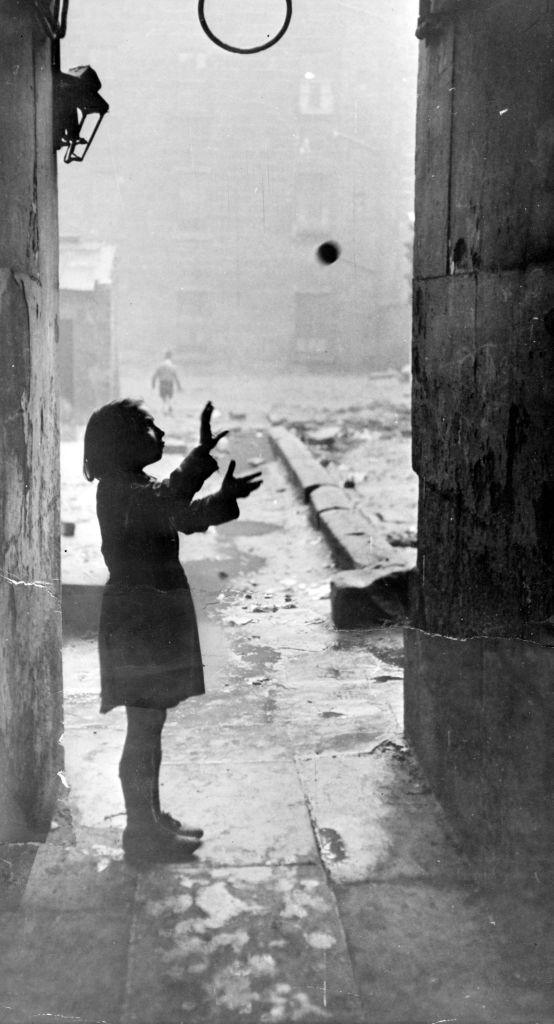
This led to overcrowding. With several people sharing the same toilet, sewage and contaminated water filled the streets.
In some of the tenements, up to eight family members would share a single room, 30 residents would share a toilet and 40 sharing a tap.
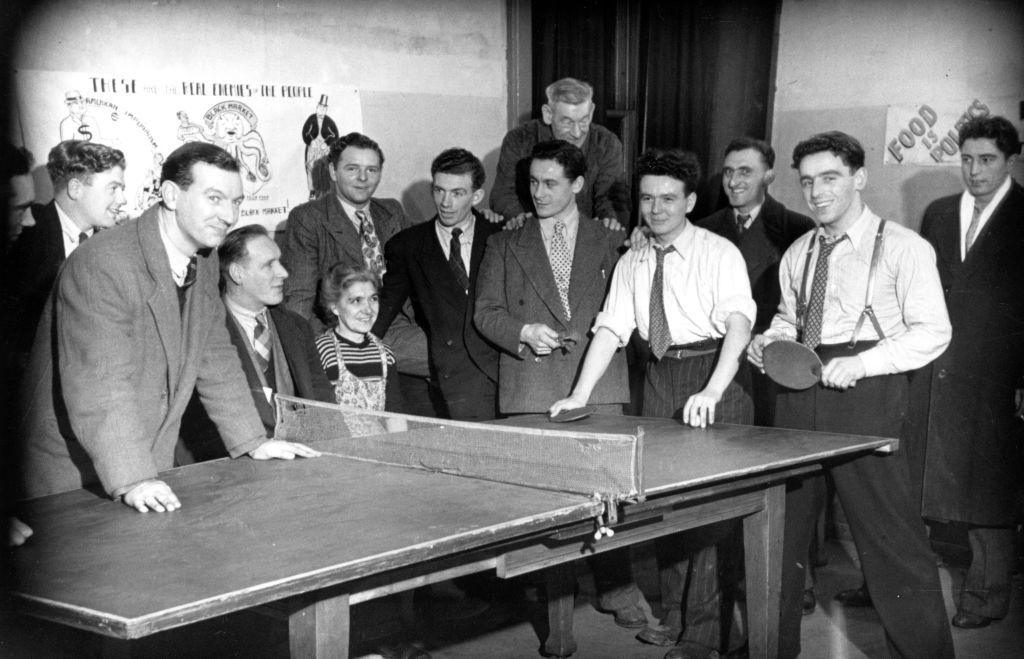
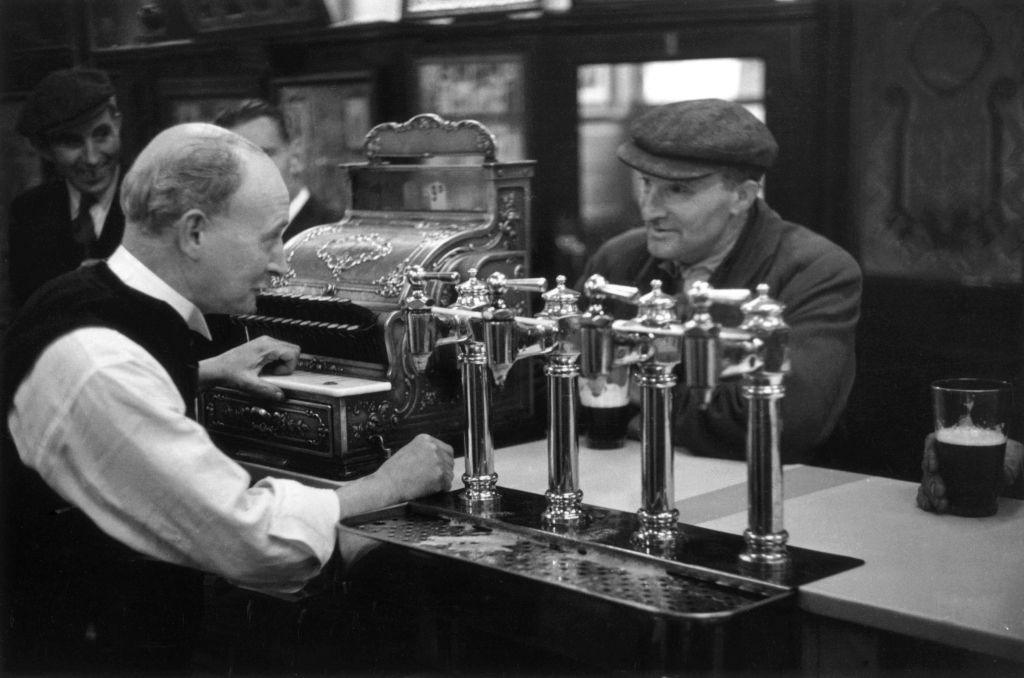
Hardy captured his famous Gorbals boys picture in 1948. Between then and 1920, 850 tenements had been demolished.
The tenements were replaced with a modern tower block complex in the 1950s and 1960s as the area began to redevelop.
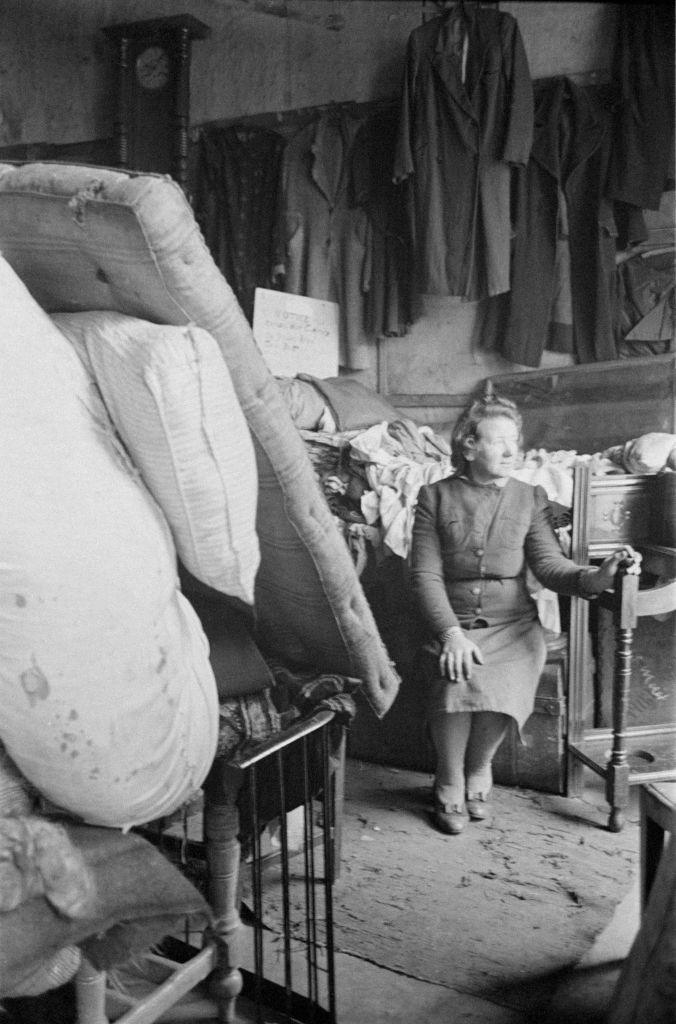
Mrs Lundy at her junk shop in Bedford Street in the Gorbals
Get in touch
What stories you would like BBC News to cover from Glasgow and the west of Scotland?